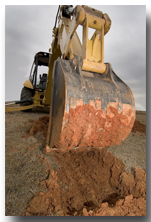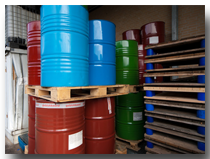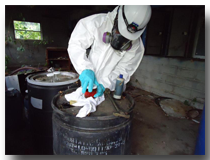Environmental Law
Mr. Shissias assists clients with environmental due diligence, audits, compliance, site cleanup and cost-recovery matters under CERCLA.
He defends clients regarding alleged violations of the state Pollution Control Act and Hazardous Waste Management Act, and the federal Clean Water Act and the Clean Air Act.
His experience includes air pollution control, 401 water-quality certifications, wetlands, solid and hazardous waste, environmental health and laboratory certifications.
|
Developers of new or expanded manufacturing facilities have complex permitting challenges to overcome, including land use and zoning, and may be required to obtain numerous environmental permits before construction can commence. These can include air permits, land disturbance permits, wetland permits, NPDES point source and stormwater permits, wastewater pretreatment permits, and hazardous waste registrations. These permits, licenses, and registrations involve review by different local, state and federal agencies, including municipalities, counties, DHEC, DHEC’s Office of Coastal Resource Management, EPA, and the Army Corps of Engineers. Navigating this regulatory maze can be difficult. Some of these permits require public notice and comment and all can be challenged in court in the event there is local opposition to the project. Under state law, the filing of a permit appeal results in the automatic imposition of a stay on construction, and can result in months of delay without the timely intervention of legal counsel. |
 |
Compliance boils down to knowledge and control.
For a new facility, just getting the right permits isn’t enough; you need an integrated environmental management system to track and maintain compliance with all these permits. Air, stormwater, hazardous waste, and other permits can create daily, weekly, monthly, quarterly, and annual compliance and recordkeeping activities. Facilities need to know each requirement with which it needs to comply and needs to know what operating parameters indicate compliance or noncompliance. Every facility needs a calendar with deadlines for report submission, certifications, and notifications. Audits and informal spot checks are indispensable tools in enhancing compliance, and with the assistance of counsel, audit results can maintain privileged status, and instances of noncompliance can be self-reported, and in South Carolina, immunity for self-disclosed violations may be available.
Even the best managed facility can fall out of compliance, which can result in a trip to Enforcement, with the prospect of stiff fines, rigid compliance schedules, and onerous permit modifications. The questions of whether or not a requirement is applicable, whether a violation has occurred, or the reasonableness of a penalty all turn on legal interpretations of statutes, regulations, and agency guidance.
|
|
Statutes like Superfund present a high risk of liability for clients who wish to purchase and redevelop former or existing industrial sites. However, there are tools available to manage that risk.
Due Diligence performed prior to acquisition by counsel working together with environmental professionals can present a comprehensive view of a site’s condition. By performing a sufficiently rigorous inquiry into site conditions and history, certain legal protections may be available to a purchaser.
Even if a site has been impacted, certain Brownfields protections may be available. A purchaser can enter into a Brownfields agreement to protect itself from liability. In cases where a site owner is considered a liable Responsible Party, it can still benefit from a voluntary cleanup contract.
|
 |
Solid waste disposal, processing, and transfer facilities are pervasively regulated, and in South Carolina are also subject to local regulation through the Solid Waste Planning process. Certain facilities are required to demonstrate compliance with local Solid Waste Management Plans, which are created and maintained either by the county or a delegated Solid Waste Authority. Often the development of a facility can turn on whether or not DHEC deems the facility “consistent” with the relevant local plan.
The question of whether an activity is considered recycling or solid waste management is also a complex issue. True recycling activities are largely unregulated, but the question of whether a material is a “waste” is a complex legal question subject to DHEC and EPA interpretation.
|
|
Every facility is required to make waste determinations on whether or not a waste stream is a Hazardous Waste, and if a waste is hazardous, it is subject to pervasive regulation regarding its generation, storage, transportation, and disposal.
Unfortunately, even if you comply with all legal requirements relating to the generation and disposal of your hazardous or other solid waste, if the facility at which that waste is disposed of becomes contaminated, and if the operator is insolvent, EPA and/or DHEC can pursue every generator who sent waste to a facility for cleanup costs through Superfund. The laws and practices governing the apportionment of such costs are complex, and with guidance a generator may be able to reduce its apportioned share of cleanup costs.
|
 |
|
|
| |
The materials on this website have been prepared for informational purposes only; they do not constitute legal advice. You should not act on the basis of these materials, and they are not a substitute for
obtaining legal advice from your own lawyer. Browsing on this website or contacting us through this website does not constitute or create an attorney-client relationship. If you contact us through this website
please do not send any confidential information. The Shissias Law Firm, LLC does not warrant the accuracy, completeness, or updated status of the materials on this website.
1727 Hampton Street | Columbia, SC 29201
alex@shissiaslawfirm.com | 803.540.3090
Home | Environmental Law | Administrative and Regulatory Law | Municipal and Water Law | Our Attorneys | Sitemap
Site Design by Convergent Design
Copyright © 2021
|



